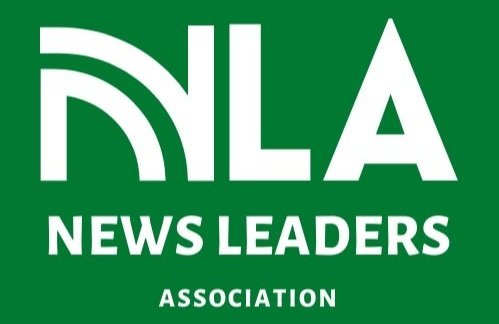Recap: Transformative Transparency Exchange - AAPI journalists
On May 20, we held the third session in NLA’s new Transformative Transparency Exchange series. This event was geared toward helping news leaders mitigate blind spots and better support their Asian American and Pacific Islander journalists.
Following the Atlanta shootings, the mainstream media needed deep guidance from experts like the Asian American Journalists Association (AAJA) on how to fairly and accurately cover AAPI communities. For decades, AAPI journalists have seen newsrooms struggle to navigate coverage of AAPI communities, reflecting a dearth of AAPI leadership and lack of diversity within the newsrooms.
Speakers included Jin Ding, program manager for news partnerships at the Associated Press, vice president of finance at AAJA and co-director of AAJA Women and Non-Binary Voices Affinity Group; and Nicole Dungca, a reporter with The Washington Post's investigative unit and senior vice president at AAJA. The conversation was led by Paul Cheung, NLA Board member and director of journalism + technology innovation at the Knight Foundation.
Here’s a broad recap of what we discussed, with some tips our speakers shared.
Between COVID and the Atlanta shootings, there have been many issues related to coverage of AAPI communities this past year, and AAJA has stayed on top of providing guidance and resources to help.
Many of the concerns come down to language and word choice. Being precise and accurate in the language journalists use is an essential part of reducing harm in the communities you cover.
Here are some resources they've shared to help guide coverage:
Guidance on Atlanta shootings & anti-Asian hate incidents
Pronunciation guide and video for Asian victims of Atlanta shootings
A call on news organizations to exercise care in coverage of the Coronavirus pandemic
It's important that it's not just AAPI journalists who are answering these questions and enforcing best practices. That responsibility should fall on all members of a news organization.
Regardless of your race, ethnicity, gender or identity, all journalists should belong to affinity groups such as AAJA, NABJ, NAJA, NAHJ, NLGJA, etc. These organizations welcome allies and can help educate you so you can better support your colleagues. Participation and engagement with these groups is a strong signal that you care and want to do better.
While it's necessary to empower AAPI journalists to have a voice, avoid tokenizing them and making them feel as if it's their duty to speak up about matters involving Asian and AAPI communities. And keep in mind that there's a lot of diversity within the AAPI community. Don't expect one person to understand all the nuances that exist.
Panelists shared some common pitfalls when it comes to covering AAPI communities:
Hypersexualiation of Asian/AAPI women
Not understanding the context of anti-Asian history in the U.S.
Grouping all AAPI groups together and assuming they're a monolith
Misinterpreting COVID data and underrepresenting its impact on AAPI folks
Visual misrepresentation, like using generic images of people wearing masks in Chinese cities before the pandemic began
Speakers shared efforts that AAJA has been taking to support mental health for AAPI journalists. AAJA shared a resource page on mental health support, and also established the AAPI Journalists Therapy Relief Fund. The campaign is raising funding for mental wellness resources needed to process trauma resulting from work in the media industry and daily lives.
In addition to these resources, it's important for news leaders to be doing everything they can to provide support for their journalists. Here are some tips for how you can help your colleagues.
Check in on your AAPI colleagues. Ask them how they're doing. It might be awkward, especially if it's the first time or if it's a result of a traumatic breaking news event like the Atlanta shootings. But that shouldn't stop you; it's just a sign you weren't doing enough before.
Consider your employees' mental health as part of your management. Normalize talking about mental health wellness.
Ask questions, but do so with respect. No question is stupid as long as you've done the work to build trust.
Empower other colleagues and leaders to reach out.
Don't just put out statements or share resources and think that's enough.
Work to ensure your team sees you as human as well. Don't be afraid to be vulnerable; it can help others open up and feel comfortable asking for help.
Work at making people feel like they belong. Simply hiring a diverse team and promoting DEI efforts isn't enough.
Create communication channels so that AAPI journalists can feel comfortable speaking up and sharing if you did something wrong. Welcome feedback and constructive criticism.
Support and join affinity groups. This reinforces the fact that you care and you're doing the work.
Share coverage guidance among your organization, and do the work to enforce best practices.
Show up and be supportive beyond those moments and aftermath spurred by breaking news.
This event series offers support and space for marginalized journalists through panel discussions and open dialogue. It’s tied to our larger effort — the Transformative Transparency Project — which will provide the numbers, narratives and knowledge to assist news media stakeholders in undertaking reforms that address the critical lack of newsroom diversity. We hope it helps to bring transparency to issues that take underrepresented people out of the industry.
Due to the nature of the discussions — and to keep these safe spaces — we won’t record sessions in this series. Sign up to receive updates on all events in this series.

